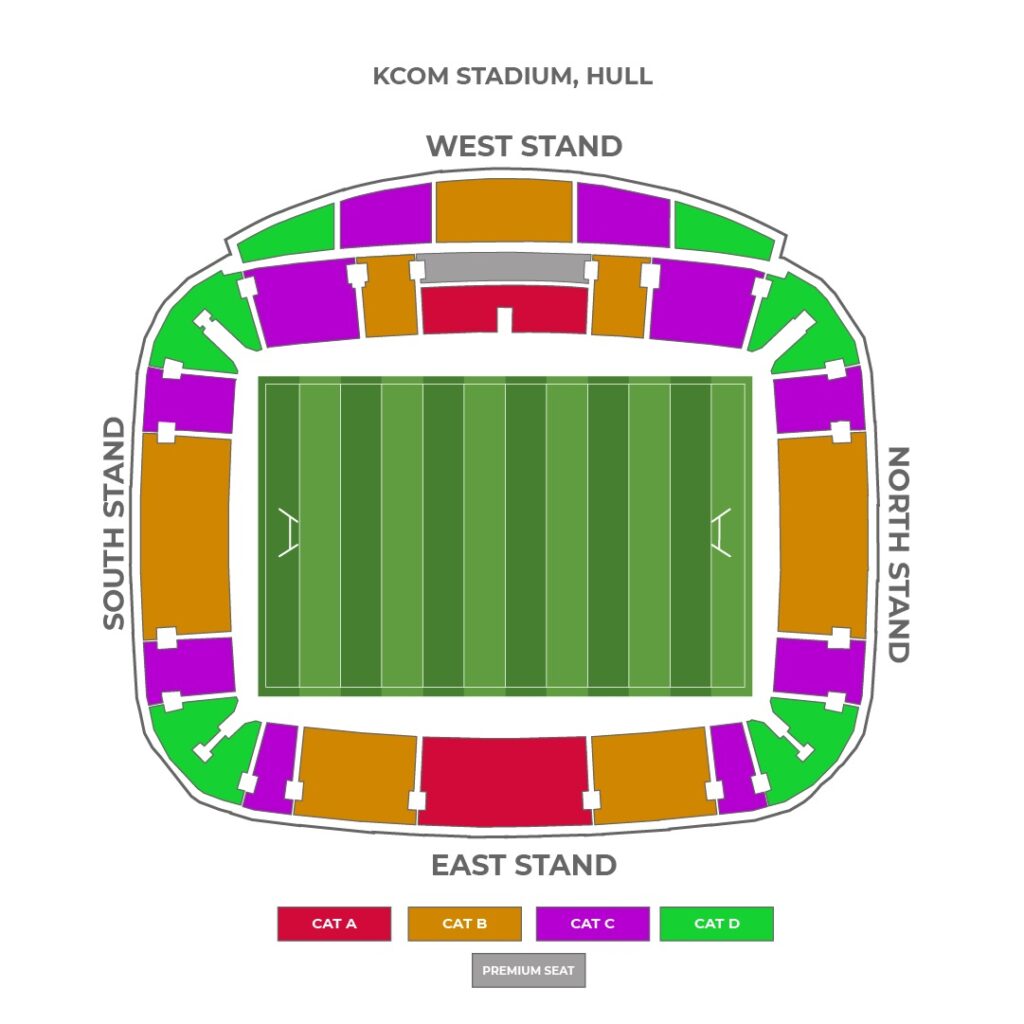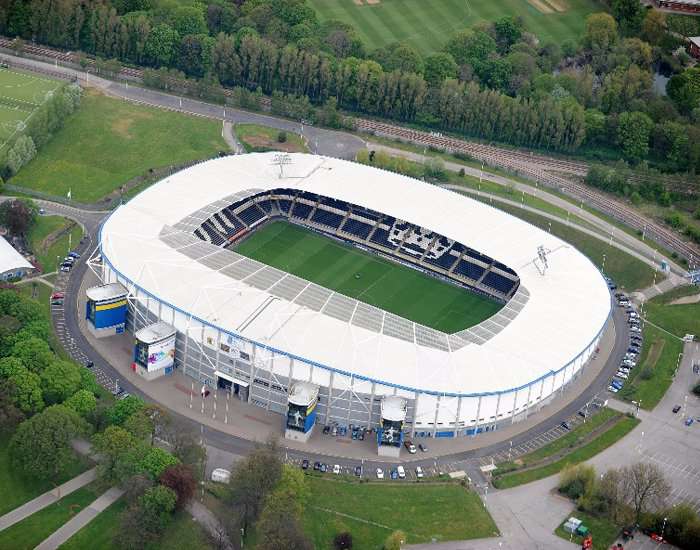Due to UEFA sponsorship rules, MKM Stadium is also known as Hull City Stadium. It is a multi-use facility in the English city of Kingston upon Hull. The stadium was previously called KC Stadium but was renamed KCOM Stadium as part of a major rebranding by the stadium’s sponsor, KCOM, on April 4, 2016. In June 2021, it was renamed MKM Stadium as part of a five-year sponsorship. with building materials from MKM.
Conceived in the late 1990s, it was completed in 2002 at a cost of approximately £44 million. The stadium is owned by Hull City Council and operated by the Stadium Management Company (SMC), which previously considered expanding the stadium’s capacity up to 32,000.
The bowl-shaped stadium contains a single continuous tier of seats with a second tier on the west side. Its current capacity is 25,400. The stadium is home to two tenants, association football club Hull City AFC, who moved there from Boothferry Park, and rugby league football club Hull FC, who moved in from the Boulevard.
It is also the largest rugby league stadium in England. The ground also hosts international soccer and rugby league soccer competitions and acts as a venue for concerts by musical artists, such as Elton John and The Who.
| Built In: | October 2002 |
| Capacity: | 25,400 |
| Home Teams: | Hull City |
| Ground Size: | 114 x 78 yards |
KCOM Stadium History
The idea of a new stadium for Kingston upon Hull, whose professional football club Hull City had played at Boothferry Park since 1946, was first mooted in 1997, but the funds to finance such a project only became available when the council sold part of it. of its interests in Kingston Communications. The council provided the bulk of the funding, over £42m, with the remainder coming from the government’s one-time regeneration budget grants and the Football Stadium Improvement Fund.
The council appointed John Topliss to lead the stadium construction project. He and his team partnered with consulting firm Jonas Drivers to explore preliminary issues such as the stadium’s location, seating capacity and the facilities on offer. Declared Mr. Topliss: “We had a completely blank canvas and, working with consultants, we did a thorough assessment of what was needed.”
The project team considered more than a dozen sites, in and out of the city, before settling on The Circle at West Park. Factors contributing to the decision include transport guidance, central government planning guidelines, existing sports facilities, isolation of residential areas, and council ownership. The stadium site is located some 100m from the original Hull City, the ‘Circle’ stadium, which was the club’s home from 1906.
Drivers Jonas’s final suggestion was to give the people of West Hull more indoor and outdoor sports facilities in addition to the main stadium, which was meant to hold between 25,000 and 30,000 people. Professional services firm Arup Associates provided initial concept proposals for the stadium. Miller Partnership, an architecture, and interior design firm embraced these proposals during the design of the stadium. The construction work was carried out by the Birse Group.
Despite obstacles during the course of the project, including the receivership of the Hull City A.F.C. in 2001 (just after planning permission was granted), the stadium complex was completed on time (within fourteen months) and on budget (approximately GB£44 million). The stadium opened on December 18, 2002. Hull City beat Sunderland A.F.C. 1-0 in a friendly match to mark the occasion. Steve Melton scored the goal, his first at KC Stadium.
Due to the unavailability of its usual venue of Old Trafford, the stadium hosted the 2020 Super League Grand Final.
Stadium Capacity
KCOM Stadium has a seating capacity of 25,400 seats.
KCOM Stadium Seating Plan
KCOM Seating Plan:

Notable Events & Records
Not Yet.
Upcoming Events
N/A
Parking
There is a large stadium car park available at a cost of £5 per car, which you can enter from Walton Road. Like many other stadium car parks, it can be a slow process to get back out afterward, so the advice would be to leave early enough to avoid the crowds. Street parking can be found, but resident parking schemes are in progress, so be aware of where you leave your car.

